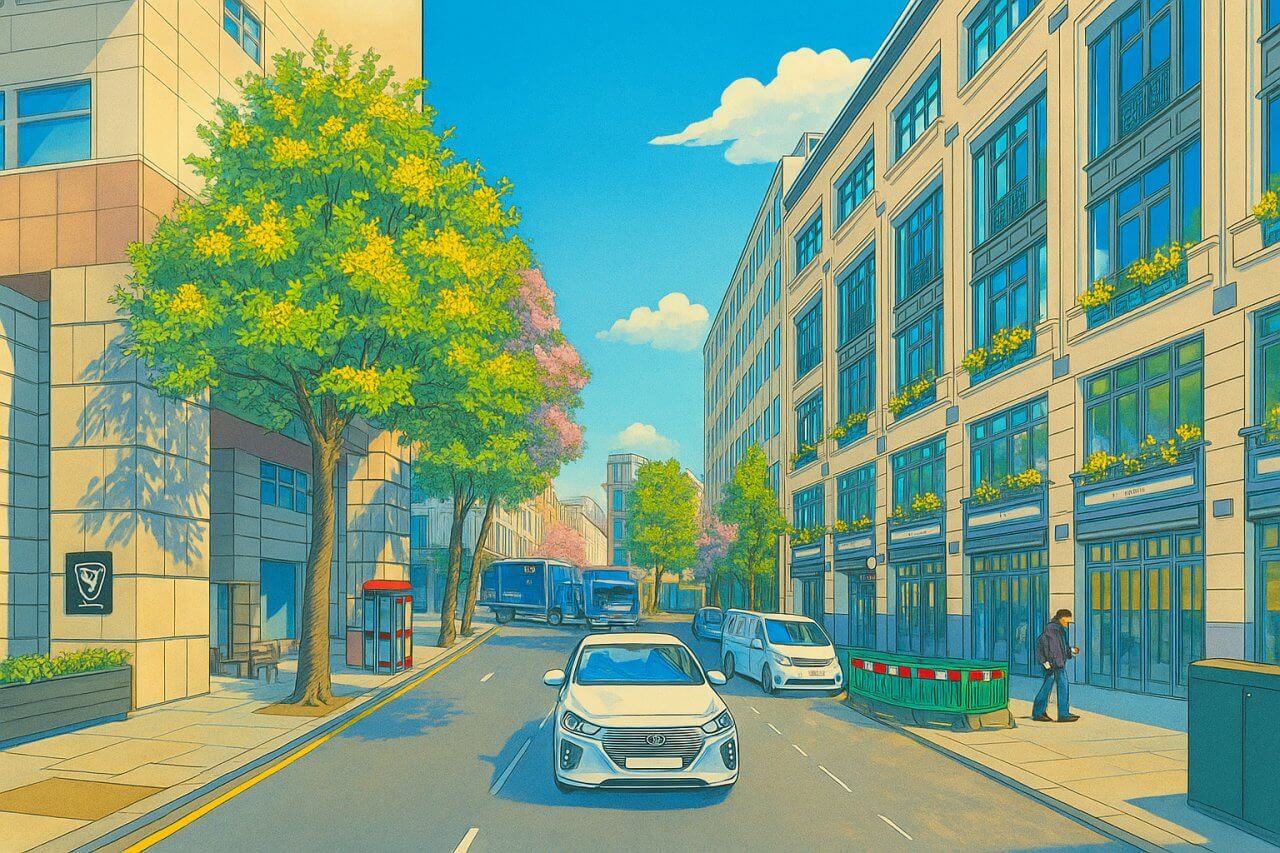
Upper St Martin's Lane, London
Upper St Martin's Lane is a short yet dynamic street in the City of Westminster, nestled in the heart of the West End of London. This street plays an important role as a connector between two of the area’s busiest intersections. To the north, it begins at the three-way junction with Monmouth Street, Shelton Street, and West Street. Heading south, it terminates at the bustling six-way junction where Long Acre, Garrick Street, St Martin's Lane, Cranbourn Street, and Great Newport Street converge.
Street Character and Surrounding Area
Upper St Martin's Lane is lined with a mix of boutique shops, restaurants, small hotels, and stylish bars, contributing to the cosmopolitan feel of Covent Garden. Architecturally, it offers a blend of old and new—historic façades and narrow plot widths stand beside newer developments. Though relatively short in length, it is a pedestrian-friendly and frequently walked route, especially for visitors navigating between Covent Garden and Leicester Square.
Notable neighbouring streets include the entertainment-focused West Street, home to the Wyndham’s Theatre; Monmouth Street, known for its independent shops and cafes; and Long Acre, one of the main shopping avenues in Covent Garden. The proximity to iconic areas like Soho, Charing Cross Road, and Covent Garden Market makes Upper St Martin’s Lane an attractive route for tourists and locals alike.
History and Etymology
Upper St Martin’s Lane is the northern extension of the older and more famous St Martin’s Lane, which dates back to at least the 17th century. The term “Upper” distinguishes it from the more southerly stretch, indicating elevation or geographical position. The name is derived from the nearby St Martin-in-the-Fields Church, dedicated to Saint Martin of Tours, a patron saint of the poor. The name “St Martin” is pronounced Saint MAR-tin, /ˈsɛnt ˈmɑːtɪn/ in the International Phonetic Alphabet.
The area began to develop in earnest during the 17th and 18th centuries, with the road forming part of the old thoroughfares linking central London with its western suburbs. By the Victorian era, the lane and its surroundings became heavily commercialised and have retained this character ever since.
Notable Landmarks and Attractions
While the street itself is modest in length, its location places it within walking distance of many attractions:
- Wyndham’s Theatre – Located just off Upper St Martin’s Lane on Charing Cross Road, this Grade II-listed building has hosted world-renowned plays since 1899.
- Covent Garden Market – A few minutes’ walk to the east, this historic marketplace features shops, street performers, and eateries.
- Seven Dials – The unique seven-way junction lies just north, offering boutique shopping and theatre attractions.
- Leicester Square – Easily accessible via the southern end of the lane, it is a major hub for cinemas, nightlife, and events.
Property and Real Estate
Upper St Martin’s Lane is part of the Covent Garden property market, one of London’s most desirable and expensive districts. As of mid-2025, residential property prices in this area typically range from £1.3 million to £2.5 million for a 1- or 2-bedroom flat measuring between 700 and 1,200 sq ft (65 to 111 sq m). Rental prices are also premium: a similar flat commands around £4,500 to £6,500 per month depending on amenities and finish quality1.
Due to its central location, much of the housing stock comprises converted flats above commercial units or purpose-built luxury apartments. Limited availability adds to the exclusivity of addresses along the street.
Transport Connections
Nearest Underground Stations
The closest London Underground Stations are:
- Leicester Square Station – served by the Northern and Piccadilly lines.
- Covent Garden Station – also on the Piccadilly line, located a few minutes’ walk to the east.
- Tottenham Court Road – reachable via nearby Charing Cross Road, offering access to the Northern, Central, and Elizabeth lines.
These stations make Upper St Martin’s Lane well-served for those travelling across London Underground networks, whether heading to Heathrow, King’s Cross, or the City of London.
Bus Services
Nearby bus stops can be found along Charing Cross Road and Long Acre. Services include routes 24, 29, 176, and others providing connections to Camden Town, Trafalgar Square, and south London. Night buses also operate in this area, maintaining 24-hour connectivity.
Fun Fact
Upper St Martin’s Lane was once home to the original “Stringfellows” nightclub in the 1980s, which helped cement the area’s reputation for night-time glamour. Although the venue has since changed, the street’s association with entertainment and nightlife continues to this day.
Quick Facts
- Location: City of Westminster, West End, London
- Connects: Monmouth Street/Shelton Street/West Street in the north to Long Acre/Garrick Street/St Martin’s Lane/Cranbourn Street/Great Newport Street in the south
- Nearest Underground Stations: Leicester Square, Covent Garden, Tottenham Court Road
- Underground Lines: Northern, Piccadilly, Central, Elizabeth
- Nearby Bus Routes: 24, 29, 176 and night services on Charing Cross Road
- Residential Property Prices (2025): £1.3M–£2.5M for 700–1,200 sq ft (65–111 sq m)
- Rental Prices: £4,500–£6,500 per month for similar properties
- Historic Association: Named after St Martin-in-the-Fields church; development from 17th century onward
- Fun Fact: Once the site of the original Stringfellows nightclub in the 1980s
References
Map of Upper St Martin's Lane, London
 Painting of Upper St Martin's Lane, London
Painting of Upper St Martin's Lane, London